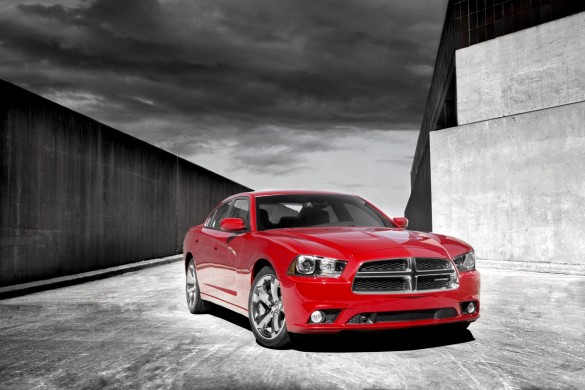The numbers from the U.S. Big Three automakers are in, and on the surface it appears to be good news for the recovering domestic auto industry. In terms of unit sales, General Motors leads the pack, shipping some 2.5 million units in 2011 for a 13.7 percent growth over 2010. By GM division, Chevrolet pushed the most metal, selling 1.8 million vehicles (up 13.4 percent); GMC sold almost 398,000 units (up 18.8 percent); Buick moved close to 178,000 units (up 14.3 percent) and Cadillac sold just over 152,000 vehicles (up 3.7 percent).
Ford sold 2.1 million vehicles in 2011, led by the Ford brand which delivered just over 2 million unit sales for an increase of 17.4 percent from 2010. Lincoln sold a disappointing 85,643 vehicles in 2011, a decline of 0.2 percent compared to 2010. There were even a few Mercurys in the mix, since 248 pieces of the now-defunct brand found new homes in 2011.
Despite having the lowest unit sales, the Chrysler Group was the big winner in terms of sales growth. Overall, Chrysler sold 1.37 million vehicles in 2011, an increase of 26 percent from 2010. Dodge led the company in sales, with 451,040 units (up 18 percent), followed by Jeep with 419,349 (up 44 percent), Ram with 257,610 (up 21 percent) and Chrysler with 221,346 (up 12 percent). Even Fiat managed to sell nearly 20,000 Fiat 500s in 2011, which isn’t bad considering the brand’s difficulties in establishing a dealer network.
While sales for domestic luxury brands were either modestly higher or slightly lower than in years past, the same holds true with Japanese luxury brands. Lexus saw a decline of nearly 14 percent compared to 2010, while Infiniti fell by nearly 5 percent and Acura dropped by 8 percent.
German performance and luxury brands, however, enjoyed a record sales year. While Mercedes-Benz has yet to report numbers, Audi grew sales by almost 16 percent while Porsche saw 15 percent growth over 2010.
What does it all mean? Regular Americans, at least the few still collecting a regular paycheck, are once again shopping domestic brands thanks to improved quality, content and value. Wealthy Americans, on the other hand, seem to prefer their rides with a German flavor.




